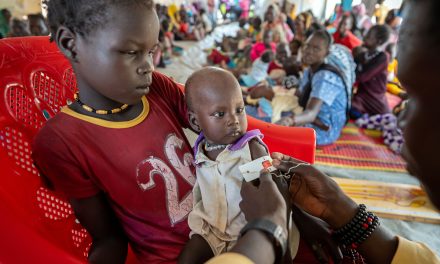
IGAD not sidelined in Sudan peace initiative: Top envoy

The Special Envoy of the head of the Sudan Sovereign Council General Abdel Fattah Al-Burhan said on Monday that the regional body Intergovernmental Authority on Development (IGAD) has key role in ending the conflict.
Dafallah Al-Haj Ali, special Envoy of Al-Burhan said the ongoing talks in Jeddah, Saudi Arabia are mainly focused on opening humanitarian corridors, adding that IGAD is likely to play key role in mediating final political settlement when the time comes.
“Our response to the initiative of Saudi Arabia and the United States does not exclude the role of IGAD and the role with which President Salva Kiir has been entrusted,” Ali said during press conference in Juba, the capital of South Sudan.
“We will never sideline IGAD especially after assigning an interested President Salva Kiir to be at the helm of this mission, we are sure he will be able, he has the wisdom, he has the experience and strong relation with our country which can make a difference and very positive effort will be done by him,” he added.
On April 17, the regional body Intergovernmental Authority on Development (IGAD) appointed Kiir to lead ceasefire negotiations in Sudan alongside Kenyan President William Ruto and Djibouti President Ismail Omar Guelleh.
Ali downplayed prospects of Al-Burhan and his rival Mohamed Hamdan Dagalo, better known as Hemdeti who leads the Rapid Support Forces (RSF) meeting soon for direct peace talks to settle the conflict.
“We are not for negotiation right now with general Hemedti. What we are doing now is just looking for ceasefire so that we are able to provide conducive situation for humanitarian corridor, but for direct peace talks we are not ready,” he said.
Ali reiterated Al-Burhan’s earlier gesture to the RSF to lay down arms unconditionally, in order for them to be pardoned and reintegrated into the national army.
He said the Sudanese Armed Forces (SAF) could have crushed the rebellion earlier on if the RSF had not embedded deeply with civilian population in Khartoum, the Sudanese capital where intense fighting between the two forces is still ongoing since April 15.
“The Sudanese army is now in full control, but the elements of the Rapid Support Forces have infiltrated inside the civilian quarters and they are now occupying hospitals, that is why the army does not want to go aggressively because of the safety of the civilians, but at the end I assure you the army which has experience of 100 years will settle the situation,” Ali said.
Deng Dau Deng, South Sudan’s Acting Minister of Foreign Affairs and International Cooperation, said President Salva Kiir has cautioned against external interference in Sudan, preferring internal solutions to the conflict.
He disclosed that Kiir held phone conversation with Volker Perthes, Special Representative of the Secretary-General for Sudan and Head of the United Nations Integrated Transition Assistance Mission in Sudan (UNITAMS).
“President Kiir had a telephone call this morning from the special representative of the secretary general of the United Nations in Port Sudan, and they conferred notes on the situation in Sudan. He asked President Kiir specifically to help in bringing (Sudanese) leaders to Juba and his Excellency the President talked about the difficulty of such kind of a move,” Deng said.
Deng said that Kiir assured Perthes on his readiness to receive Sudanese delegations in Juba for talks.
“Currently the meeting in Jeddah is limited to pre-negotiation and humanitarian purposes not the political settlement, so we still have a long way to go in Sudan and this is why the special envoy (Ali) has been in Ethiopia, Somalia and he will be going to other countries in the region,” he said.
The conflict in Sudan has killed more than 500 people and injured over 4,900. The United Nations estimates about 100,000 people to have fled the fighting into neighboring countries like Egypt, Chad, Ethiopia and South Sudan.




































